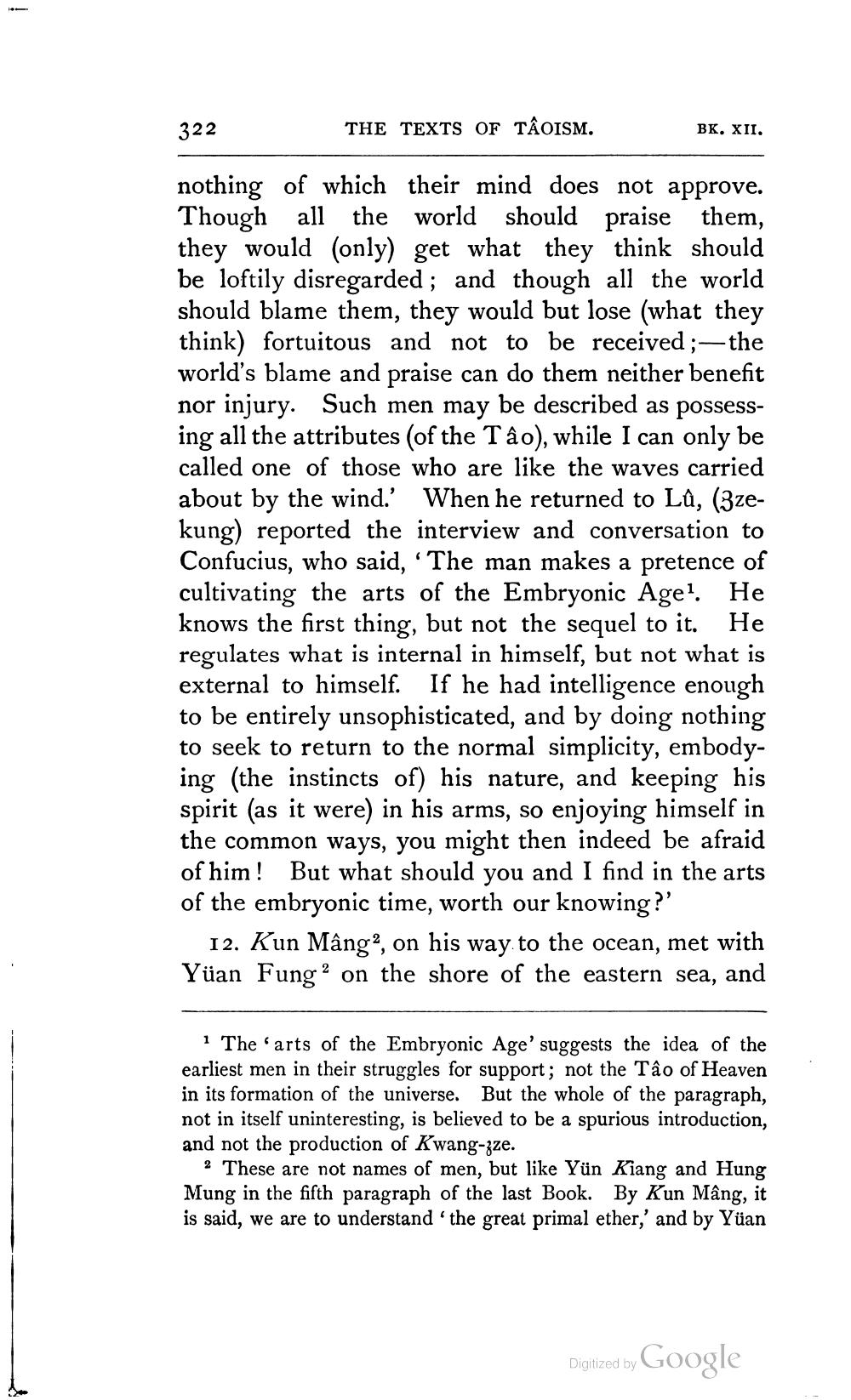________________
322
THE TEXTS OF TÂOISM.
BK. XII.
nothing of which their mind does not approve. Though all the world should praise them, they would (only) get what they think should be loftily disregarded ; and though all the world should blame them, they would but lose (what they think) fortuitous and not to be received ;—the world's blame and praise can do them neither benefit nor injury. Such men may be described as possessing all the attributes (of the Tâo), while I can only be called one of those who are like the waves carried about by the wind. When he returned to Lù, (3zekung) reported the interview and conversation to Confucius, who said, 'The man makes a pretence of cultivating the arts of the Embryonic Agel. He knows the first thing, but not the sequel to it. He regulates what is internal in himself, but not what is external to himself. If he had intelligence enough to be entirely unsophisticated, and by doing nothing to seek to return to the normal simplicity, embodying (the instincts of) his nature, and keeping his spirit (as it were) in his arms, so enjoying himself in the common ways, you might then indeed be afraid of him! But what should you and I find in the arts of the embryonic time, worth our knowing?'
12. Kun Mâng?, on his way to the ocean, met with Yüan Fung? on the shore of the eastern sea, and
1 The arts of the Embryonic Age' suggests the idea of the earliest men in their struggles for support; not the Tâo of Heaven in its formation of the universe. But the whole of the paragraph, not in itself uninteresting, is believed to be a spurious introduction, and not the production of Kwang-zze.
2 These are not names of men, but like Yün Kiang and Hung Mung in the fifth paragraph of the last Book. By Kun Mâng, it is said, we are to understand the great primal ether,' and by Yüan
Digitized by Google




